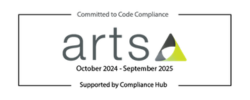Tzield approved by US Food and Drugs Administration
)
The US Food and Drugs Administration (FDA) has approved Tzield – also known as Teplizumab – injection to delay the onset of stage 3 type 1 diabetes.
The organisation has also approved the use of Tzield for children aged eight and above with stage 2 type 1 diabetes.
Tzield binds to certain immune system cells and delays progression to stage 3 type 1 diabetes.
Tzield may deactivate the immune cells that attack insulin-producing cells, while increasing the proportion of cells that help moderate the immune response. Tzield is administered by intravenous infusion once daily for 14 consecutive days.
John Sharretts, MD, director of the Division of Diabetes, Lipid Disorders, and Obesity in the FDA’s Center for Drug Evaluation and Research said: “The approval of a first-in-class therapy adds an important new treatment option for certain at-risk patients.
“The drug’s potential to delay clinical diagnosis of type 1 diabetes may provide patients with months to years without the burdens of disease.”
Tzield’s safety and efficacy were evaluated in a randomised, double-blind, event-driven, placebo-controlled trial with 76 patients with stage 2 type 1 diabetes.
In the trial, patients randomly received Tzield or a placebo once daily via intravenous infusion for 14 days.
The primary measure of efficacy was the time from randomization to development of stage 3 type 1 diabetes diagnosis.
The trial results showed that over a median follow-up of 51 months, 45 per cent of the 44 patients who received Tzield were later diagnosed with stage 3 type 1 diabetes, compared to 72 per cent of the 32 patients who received a placebo.
The mid-range time from randomisation to stage 3 type 1 diabetes diagnosis was 50 months for the patients who received Tzield and 25 months for those who received a placebo.
This represents a statistically significant delay in the development of stage 3 type 1 diabetes.
The most common side effects of Tzield include decreased levels of certain white blood cells, rash and headache.
The use of Tzield comes with warnings and precautions, including premedicating and monitoring for symptoms of Cytokine Release Syndrome; risk of serious infections; decreased levels of a type of white blood cell called lymphocytes; risk of hypersensitivity reactions; the need to administer all age-appropriate vaccinations prior to starting Tzield; as well as avoiding concurrent use of live, inactivated and mRNA vaccines with Tzield.
Tzield received Priority Review and Breakthrough Therapy designations for this indication.
The FDA granted the approval of Tzield to Provention Bio.
The drug is currently being reviewed for use in the UK.



)
)
)
)

)
)
.jpg/fit-in/1280x9999/filters:no_upscale())
.png/fit-in/1280x9999/filters:no_upscale())
)
)
)
